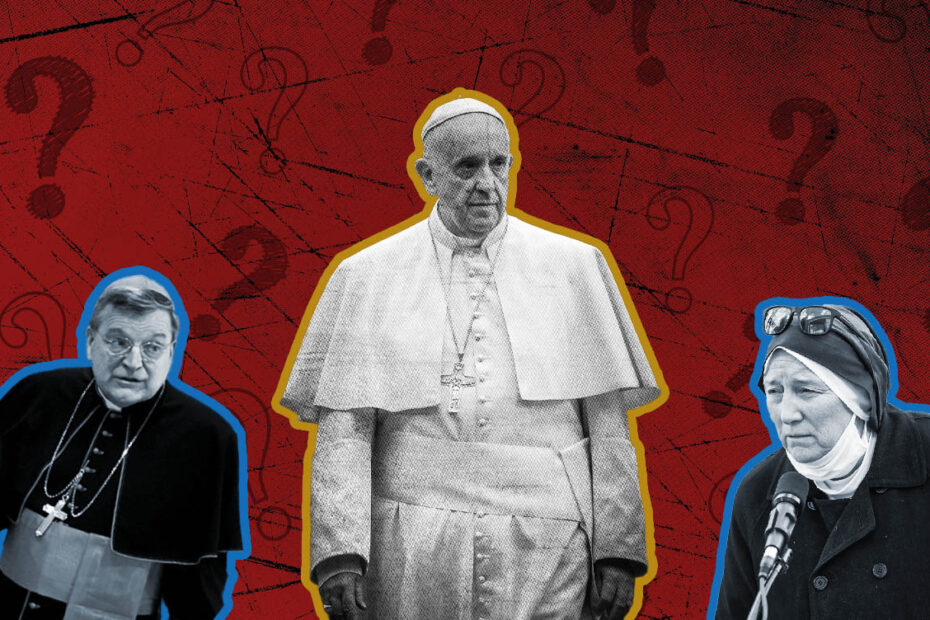By Judie Brown
Professor Charles Camosy penned a recent article saying that existential threats to the human person—including the commission of abortion or the threat of nuclear war—are a matter of debate among some theologians. This has come to pass because of what we see as an attempt by some to water down fundamental moral truth.
In his wisdom, Cardinal Joseph Zen has warned of the use of the “art of manipulation” being used by those organizing the synod. As the Synod on Synodality unfolds before our eyes in the Vatican, this has become an urgent concern.
If it were not for Catholic proportionalists—people who weigh the comparative value of benefits versus harms to determine whether or not an act is moral—there would be no reason to worry and to pray about the Synod. Respected Catholics like Father Gerald Murray point out that there are Catholics who disagree with Church teaching on many topics. They defend their antagonistic ideas even when the act is fundamentally immoral.
Such an argument, however, was roundly contradicted by Pope John Paul II in Veritatis Splendor, when he explained that such views “deny the existence of negative moral norms.” To put it plainly, such people believe there are Ten Suggestions, not Ten Commandments.
Contrary to what the proportionalist might believe, we know that obedience to God and His laws cannot include time-outs for sinful acts. Sincerely believing Christians agree on this point. So what could possibly be wrong with registering theological concerns like those contained in the July 11 dubia (doubts) submitted to Pope Francis by five distinguished cardinals of the Catholic Church?
In their letter to Pope Francis, these five cardinals—Walter Brandmüller, Raymond Leo Burke, Juan Sandoval Íñiguez, Robert Sarah, and Joseph Zen Ze-kiun—wrote:
We are concerned to see that there are pastors who doubt the ability of the Gospel to transform the hearts of men and end up proposing to them no longer sound doctrine but “teachings according to their own likings” (cf. 2 Tim 4, 3). We are also concerned that it be understood that God’s mercy does not consist in covering our sins, but is much greater, in that it enables us to respond to His love by keeping His commandments, that is, to convert and believe in the Gospel (cf. Mk 1, 15).
The cardinals then penned a letter to the faithful about those dubia. It stated in part, “Given the gravity of the matter of the dubia, especially in view of the imminent session of the Synod of Bishops, we judge it our duty to inform you, the faithful (can. 212 § 3), so that you may not be subject to confusion, error, and discouragement but rather may pray for the universal Church and, in particular, the Roman Pontiff, that the Gospel may be taught ever more clearly and followed ever more faithfully.”
Cardinal Raymond Burke explained to reporter Edward Pentin that the most important point regarding the dubia is that they address “the most grave doctrinal and disciplinary questions posed by the imminent session of the Synod of Bishops.” In other words, there is no personality conflict per se but a sincere concern that Catholics not become confused by watered-down statements regarding Catholic teaching.
Sister Dede Byrne and hundreds of Catholic women have “called on bishops at the heterodox Synod on Synodality to reaffirm Catholic doctrine, denouncing the idea of female ordinations and ‘welcoming’ unrepentant public sinners into the Church.”
These women state that if the final results of the Synod are in direct contradiction to infallible Church teaching, faithful Catholics would be adrift in a sea of contradiction. Such an outcome would mean that the bishops literally become “false shepherds whom Christ’s sheep—who hear His voice and follow Him—cannot follow.”
So we pray unceasingly for the Synod’s attendees and especially for Pope Francis.
